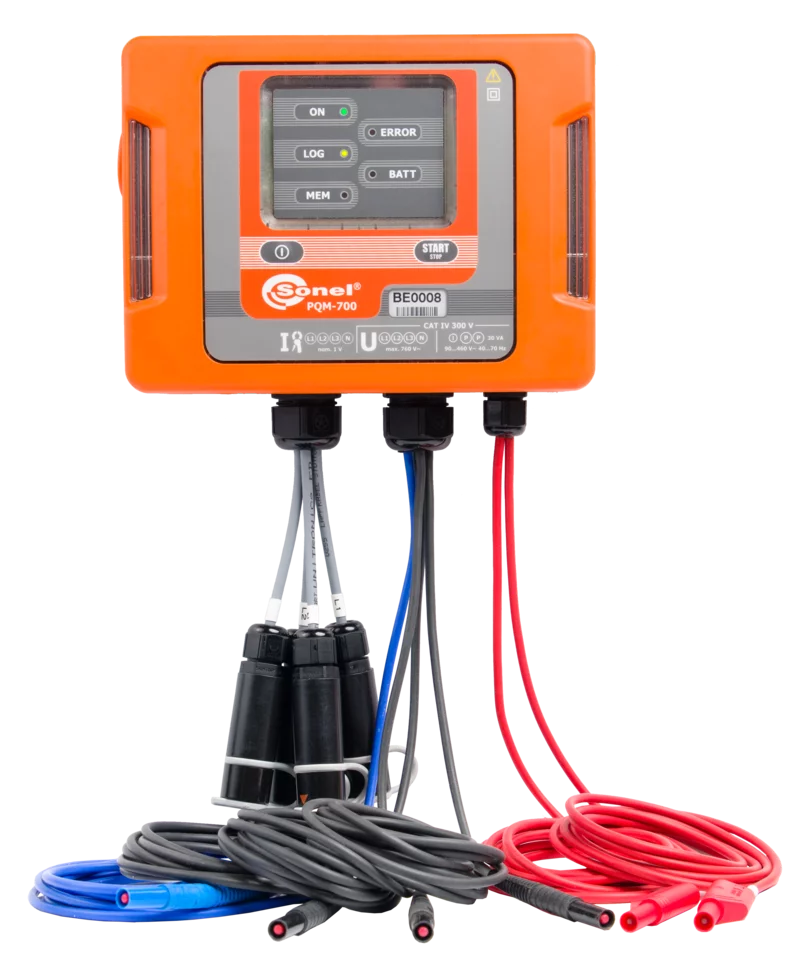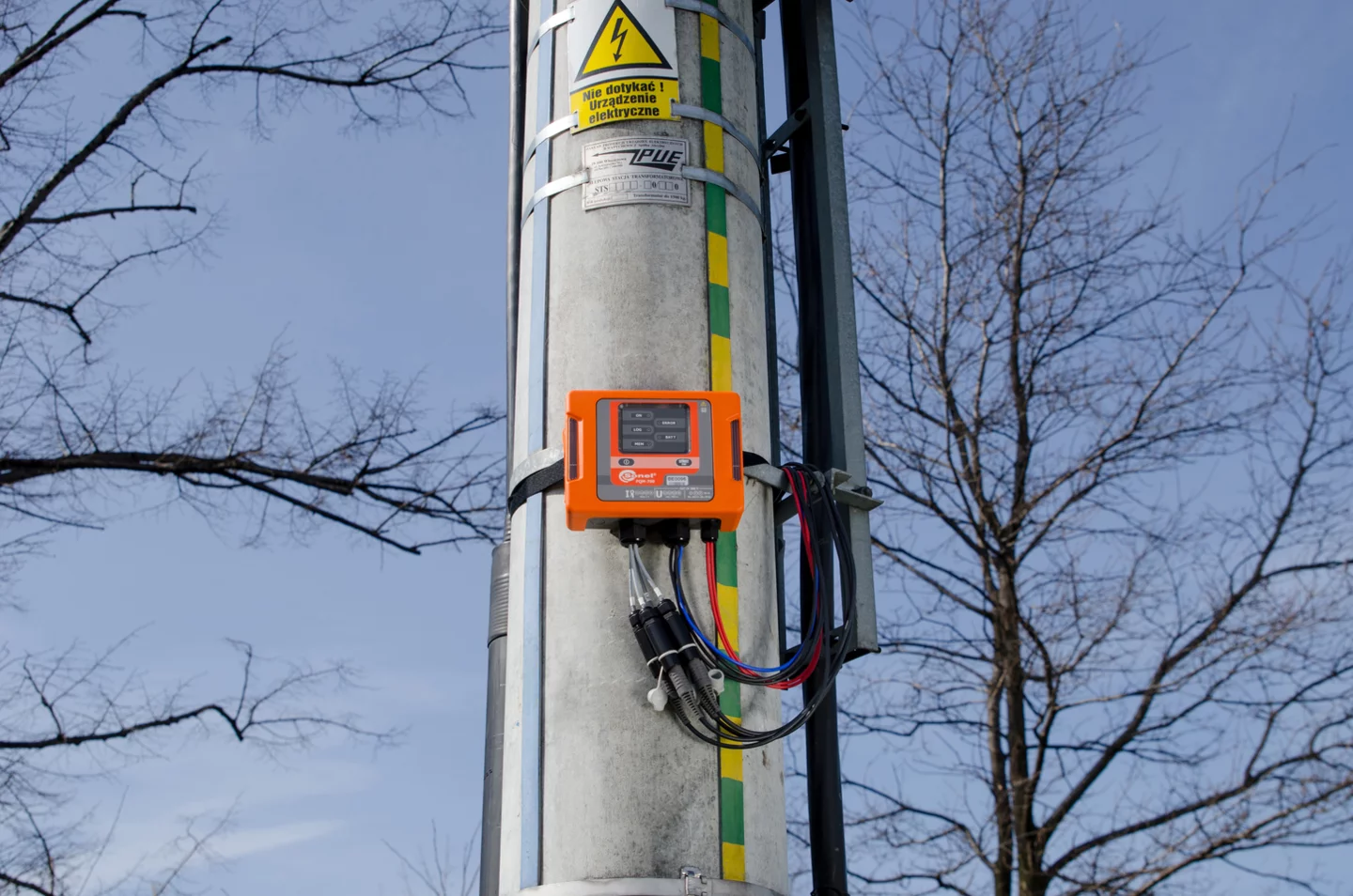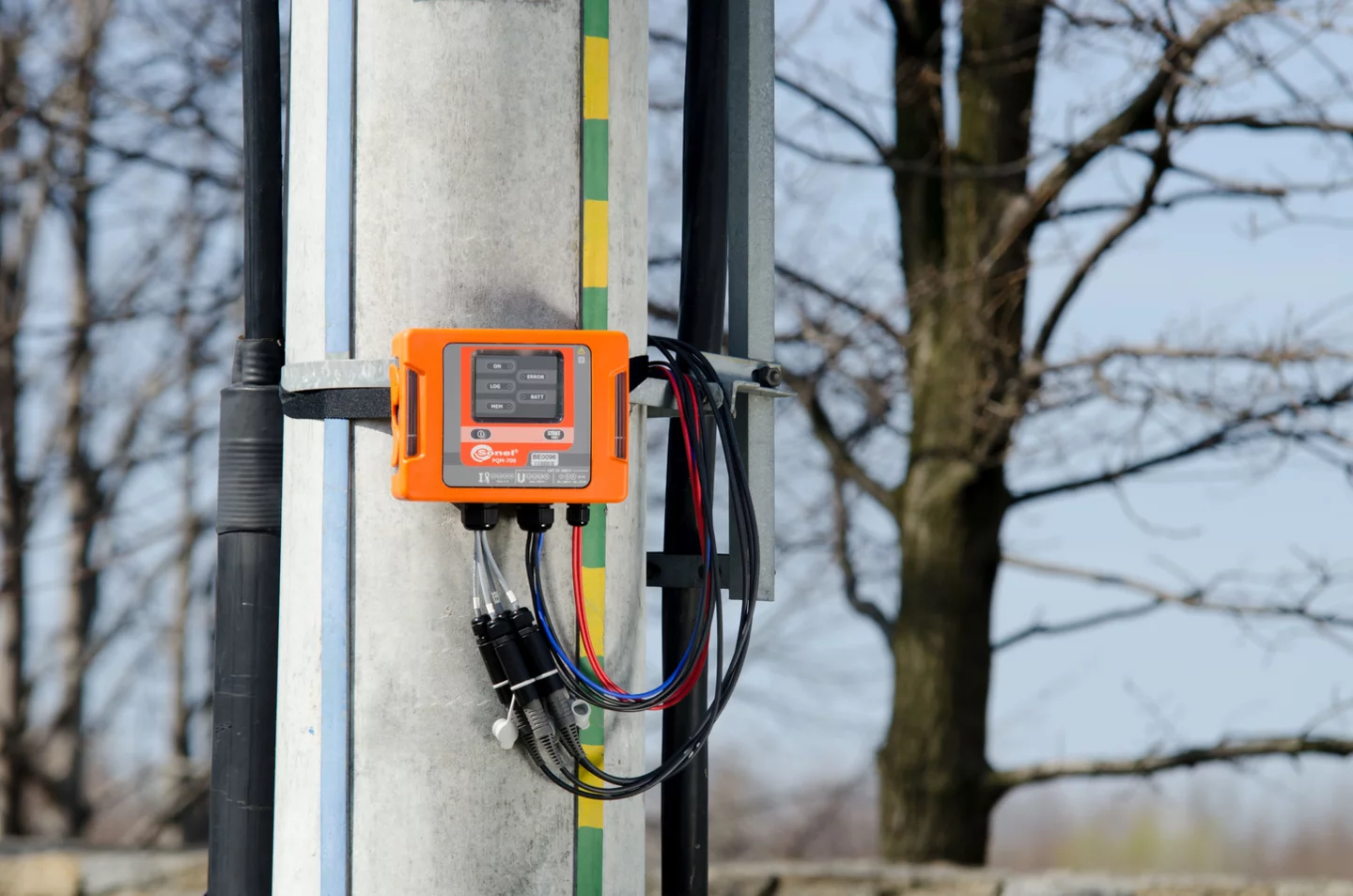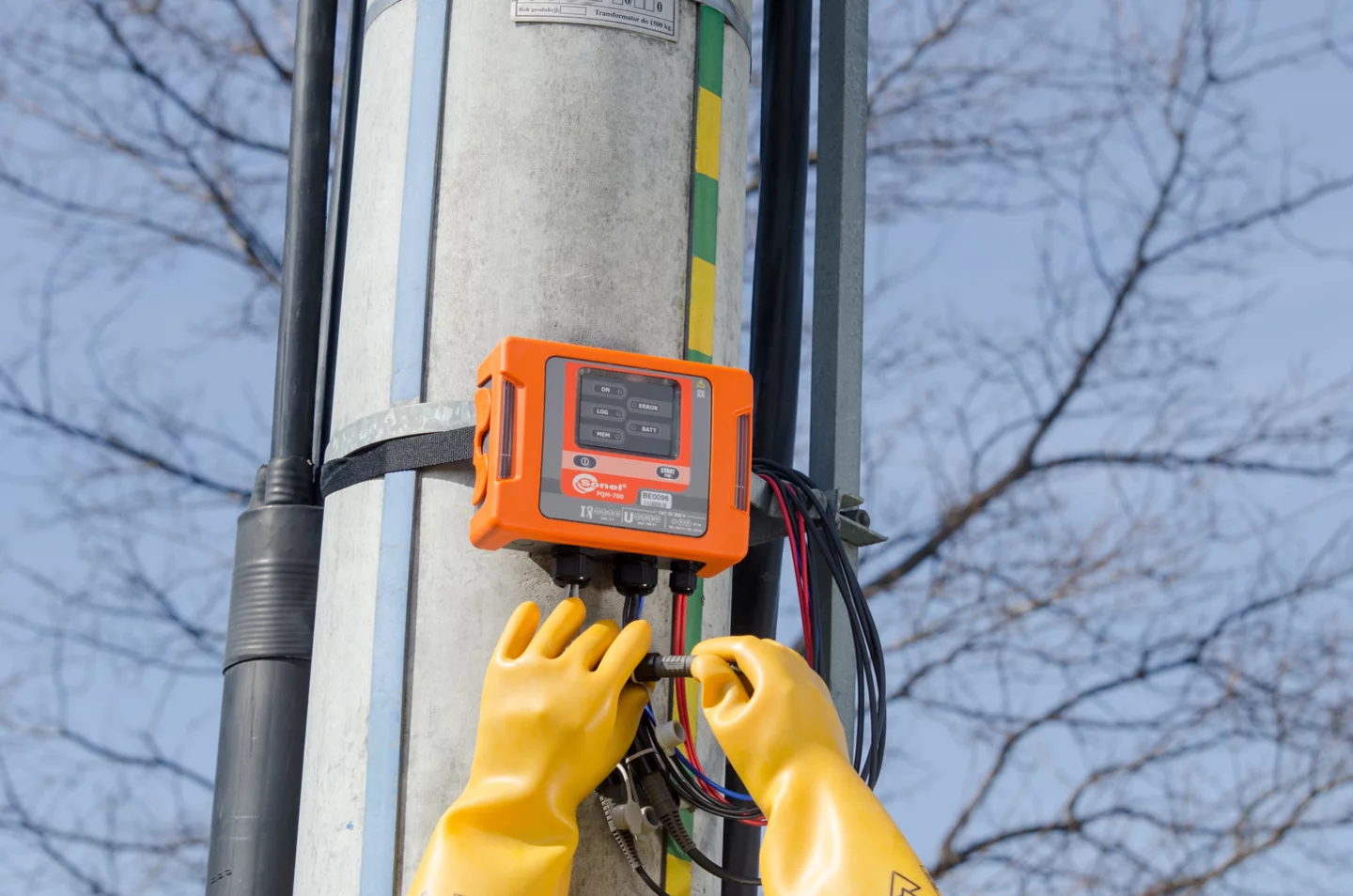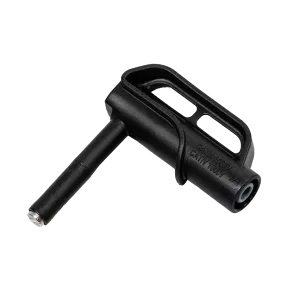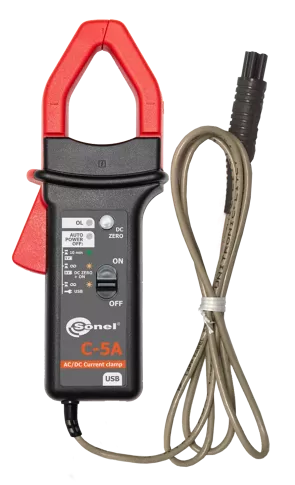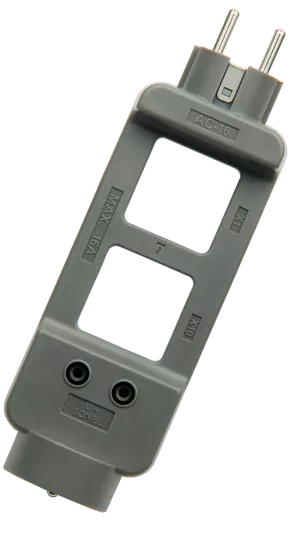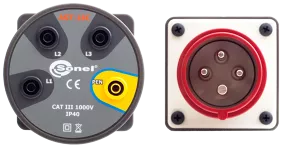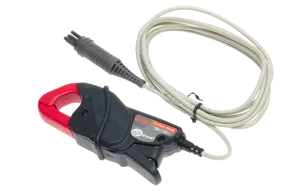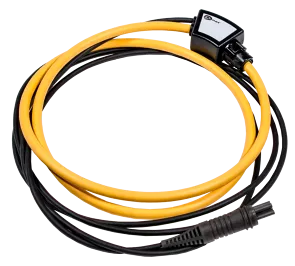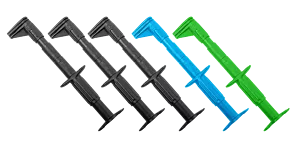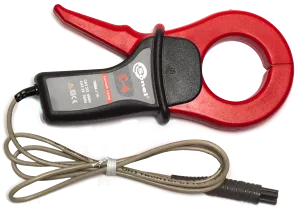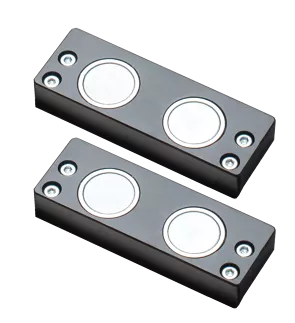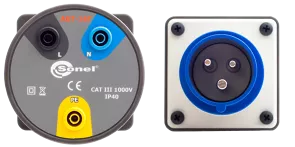Opis
Dane techniczne
Akcesoria w zestawie
Akcesoria dodatkowe
Pliki do pobrania
Rejestracja i diagnostyka w każdych warunkach
Odporny na każde warunki analizator jakości zasilania Sonel PQM-700 to skuteczne urządzenie do analizy i rejestracji parametrów sieci. Oparty na zaawansowanej technice analizator jakości zasilania Sonel PQM-700 wykazuje skuteczność przy pomiarach, analizie oraz rejestracji parametrów sieci energetycznych 50/60 Hz. Znajduje zastosowanie również przy kontroli jakość energii elektrycznej zgodnie z europejską normą EN 50160 oraz Rozporządzeniem Ministra Gospodarki z dnia 4 maja 2007 r. w sprawie szczegółowych warunków funkcjonowania systemu elektroenergetycznego. Rozbudowane możliwości pomiarowe tego urządzenia doceni szerokie grono użytkowników, którzy potrzebują przenośnego urządzenia do kontrolowania jakości energii elektrycznej. Sonel PQM-700 spełnia wymagające standardy normy IEC 61000 dla analizatorów klasy S, związanej z niepewnościami pomiarowymi oraz metodami pomiaru. Ten model miernika skierowany jest do tych użytkowników, którzy nie potrzebują analizatora klasy A, gdyż PQM-700 zapewnia wszechstronne pomiary parametrów jakości zasilania w klasie S zgodnie z normą IEC 61000-4-30.
Cechy
- 4 wejścia prądowe, fizyczny pomiar prądu w przewodzie neutralnym.
- Rejestracja do 1100 parametrów, rejestracja wartości średnich, maksymalnych, minimalnych i chwilowych.
- Rejestracja na zgodność z polskim rozporządzeniem systemowym.
- Wbudowana grzałka, możliwość stabilnej pracy w niskich temperaturach do -20ºC.
- Wbudowany akumulator, autonomiczność miernika (min. 6 godzin).
- Szczelność obudowy IP65, możliwość pracy w deszczu, śniegu, dużej wilgotności
Mierzone parametry
- Napięcia L1, L2, L3, N (cztery wejścia pomiarowe) – wartości średnie, minimalne, maksymalne i chwilowe w zakresie do 760 V, możliwość współpracy z przekładnikami napięciowymi.
- Prądy L1, L2, L3, N (cztery wejścia pomiarowe) – wartości średnie, minimalne, maksymalne i chwilowe, pomiar prądu w zakresie do 6 kA (w zależności od użytych cęgów prądowych*), możliwość współpracy z przekładnikami prądowymi.
- Współczynniki szczytu dla prądu (CFI) i napięcia (CFU).
- Częstotliwość w zakresie 40 Hz – 70 Hz.
- Moc czynna (P), bierna (Q), odkształceń (D), pozorna (S) wraz z określeniem charakteru mocy biernej (pojemnościowa, indukcyjna).
- Obliczanie mocy biernej metodą Budeanu oraz IEEE 1459.
- Energia czynna (EP), bierna (EQ), pozorna (ES).
- Współczynnik mocy (Power Factor), cosφ, tgφ.
- Harmoniczne do 40-tej w napięciu i prądzie.
- Współczynnik zniekształceń harmonicznych THD dla prądu i napięcia.
- Wskaźnik krótkookresowego (PST) oraz długookresowego (PLT) migotania światła.
- Asymetria napięć (spełnione wymogi IEC 61000-4-30 klasa S) i prądów.
- Rejestracja zdarzeń dla prądu i napięcia wraz z oscylogramami oraz wykresami RMS1/2 okresu.
- Wszystkie parametry rejestrowane zgodnie z klasą S normy IEC 61000-4-30.
*Cęgi prądowe należą do akcesoriów opcjonalnych i należy je zakupić osobno.
Obsługiwane typy sieci
- O częstotliwości znamionowej 50/60 Hz
- O napięciach znamionowych: 64/110 V;110/190 V; 115/200 V; 120/208 V 127/220 V; 133/230 V; 220/380 V; 230/400 V; 240/415 V; 254/440 V; 265/460 V; 277/480 V, 290/500 V, 400/690 V
- Prądu stałego
- O układzie:
- jednofazowym
- dwufazowym z przewodem neutralnym
- trójfazowym – gwiazda z i bez przewodu neutralnego
- trójfazowym – trójkąt
- trójfazowym – gwiazda bez przewodu neutralnego w układzie Arona
- trójfazowym – trójkąt w układzie Arona
- z przekładnikami napięciowymi i prądowymi
Możliwości
Analizator zapewnia wszechstronne pomiary parametrów jakości zasilania w klasie S zgodnie z normą IEC 61000-4-30, co stanowi gwarancję wysokiej dokładności wyników. Nawet gdy temperatura otoczenia sięga -20ºC, pomiary są rzetelne, a praca urządzenia stabilna – wszystko za sprawą wbudowanej grzałki.
Dzięki wewnętrznemu akumulatorowi analizator nie wyłącza się wraz z zanikiem napięcia, lecz podtrzymuje rejestrację – nawet do 6 godzin. Dane są rejestrowane na wymienną kartę pamięci o pojemności 2 GB. Można je odczytać przy użyciu łącza USB lub za pomocą zewnętrznego czytnika, a następnie przeanalizować w programie Sonel Analiza.
Prezentacja danych
Wszystkie zarejestrowane parametry – w tym wskazane zdarzenia – można w łatwy sposób odczytać za pomocą dedykowanego oprogramowania Sonel Analiza. Zaawansowane funkcje aplikacji pozwalają na zapoznanie się z zebranymi wynikami i ich zapis na twardym dysku komputera – w formie surowych danych lub raportów.
Sonel Analiza podlega nieustannym aktualizacjom i rozwojowi. To sprawia, że jej użytkownik nadąża za najnowszymi wymaganiami norm i standardów.
Obszary zastosowań
PQM-700 spełnia swoją rolę w przemyśle - u elektryków, w służbach utrzymania ruchu itp. - jako tani, wielofunkcyjny rejestrator parametrów obciążeń. Znajduje również zastosowanie u odbiorców i producentów energii odnawialnej (farmy wiatrowe, fotowoltaiczne), gdzie wymagana jest 4-kwadrantowa analiza zasilania.
SONEL ANALIZA
Program Sonel Analiza jest aplikacją niezbędną do pracy z analizatorami PQM. W zależności od użytego przyrządu współpracującego, oprogramowanie umożliwia:
- konfigurację analizatora,
- odczyt danych z rejestratora,
- podgląd parametrów sieci w czasie rzeczywistym (z możliwością odczytu przez modem GSM),
- kasowanie danych w analizatorze,
- przedstawianie danych w formie tabel,
- przedstawianie danych w formie wykresów,
- analizowanie danych i generowanie raportów pod kątem normy PN-EN 50160, rozporządzenia systemowego i innych zdefiniowanych przez użytkownika warunków odniesienia - również dla mikroinstalacji PV do 50 kW, z podziałem dla stanów mocy czynnej P>0, P<0 i P=0 oraz z uwzględnieniem wykresów Q1=f(U1/Un) oraz cosφ=f(P/Pn),
- niezależną obsługę wielu analizatorów,
- aktualizację do nowszych wersji przez stronę WWW.
Program umożliwia odczyt wybranych parametrów oraz ich prezentację graficzną w czasie rzeczywistym. Parametry te mierzone są niezależnie od rejestracji zapisywanej do pamięci. Użytkownik może zobaczyć:
- wykresy przebiegów napięcia i prądu (oscyloskop),
- wykresy napięcia i prądu w czasie,
- wykres wskazowy,
- pomiary wielu parametrów,
- harmoniczne i moce harmonicznych (szacowanie kierunku harmonicznych),
- interharmoniczne.
